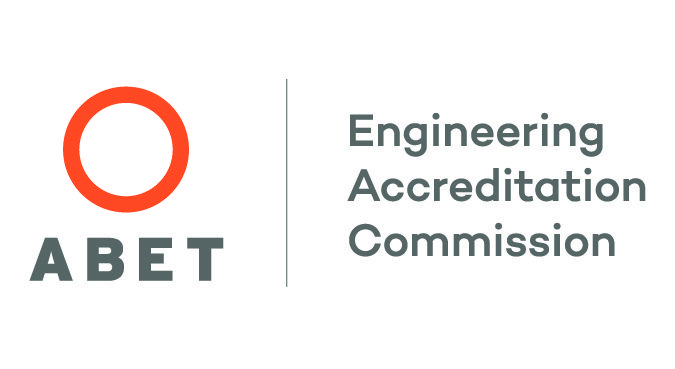Accreditation
The Bachelor of Science in Civil Engineering (B.S.C.E.) degree program within the Civil and Environmental Engineering Department at The University of North Carolina at Charlotte is accredited by the Engineering Accreditation Commission of ABET, under the commission’s General Criteria and Program Criteria for Civil Engineering.
For information about the University’s accreditation, please visit The Office of Assessment and Accreditation.

ABET Program Educational Objects (PEO)
The Bachelor of Science in Civil Engineering (BSCE) Program Educational Objectives (PEO) listed below describe the program’s objectives for BSCE graduates three to five years after they have completed the program.
- BSCE Program graduates will be progressing successfully in their career and exhibiting leadership qualities.
- BSCE Program graduates will be demonstrating integrity and ethical behavior in all professional activities. Graduates will further demonstrate professionalism by nearing/obtaining professional licensure as appropriate for their chosen career, and by actively participating in professional activities.
- BSCE Program graduates will be demonstrating their technical ability to solve problems and/or manage engineering solutions from conception through implementation.
- BSCE Program graduates will be maintaining and expanding professional competencies and mastering emerging technologies by engaging in lifelong learning that includes graduate studies and professional education.
- BSCE Program graduates will strive to incorporate global, societal, economic, and environmental impacts in their professional work, consistent with the principles of sustainable development.
- BSCE graduates will be committed to continued engagement and support of the Civil and Environmental Engineering Department and seek opportunities to mentor future engineers.
- BSCE Program graduates will be engaging and collaborating with the communities in which they live and work.
ABET Student Outcomes
By graduation, students earning a BSCE degree in the Civil Engineering Program at UNC Charlotte will have:
- an ability to identify, formulate, and solve complex engineering problems by applying principles of engineering, science, and mathematics;
- an ability to apply engineering design to produce solutions that meet specified needs with consideration of public health, safety, and welfare, as well as global, cultural, social, environmental, and economic factors;
- an ability to communicate effectively with a range of audiences;
- an ability to recognize ethical and professional responsibilities in engineering situations and make informed judgments, which must consider the impact of engineering solutions in global, economic, environmental, and societal contexts;
- an ability to function effectively on a team whose members together provide leadership, create a collaborative and inclusive environment, establish goals, plan tasks, and meet objectives;
- an ability to develop and conduct appropriate experimentation, analyze and interpret data, and use engineering judgment to draw conclusions; and
- an ability to acquire and apply new knowledge as needed, using appropriate learning strategies.